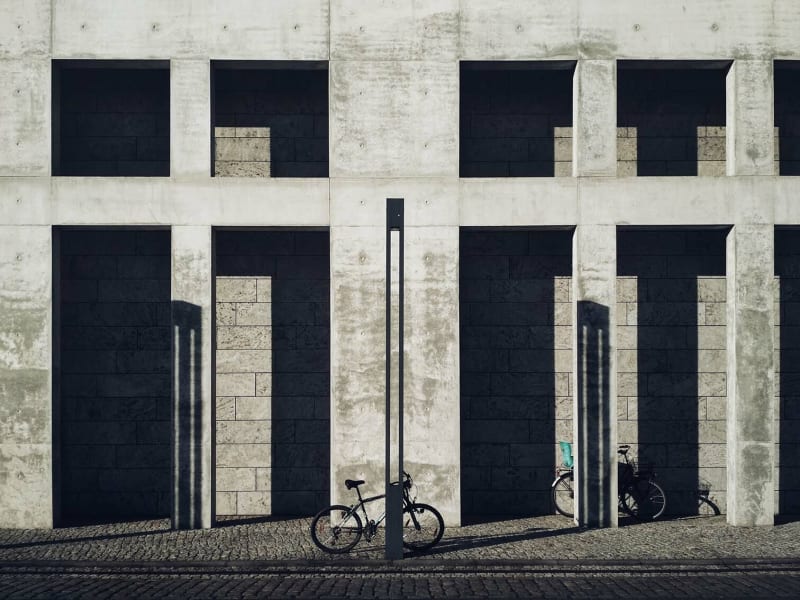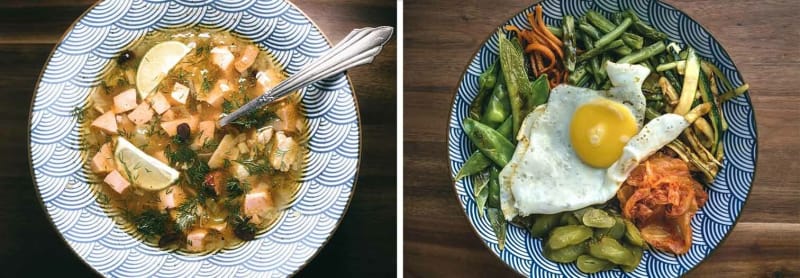Subscribe to my newsletter if you enjoyed this article.
I don’t know whether I should blame the Coronavirus for the changes in my life and the way I see work, open source, hobbies, and social networks over the past two years, or I’m just getting old. In any case, the Coronavirus allowed me to reflect on what’s important to me, and to see my life from a different point of view.
Work
I used to think that I’d keep working even if I had enough money not to work. I was enjoying my work and everything frontend for over a decade. However, recently I realized that this is no longer true.
Work doesn’t excite me as it did a few years ago, sometimes it doesn’t excite me at all for weeks or even months. And I’m still learning to live with that. I think I’d stop working if I had enough money to live comfortably.
Thought about a promotion kept lurking in my mind a few times a year. The most common promotion path for a developer — becoming a manager — never appealed to me but I kept thinking about the next technical level after a senior developer. Now I think it’s not really worth it: you get a lot of work and more responsibility for a very little salary increase.
I’m getting dissatisfied with where the frontend community is going. We went from having no tools at all to having way too many. There are more than one million packages on npm, and only a tiny fraction of them are doing something useful and compatible with each other. 15 years ago we were wasting days fighting browser bugs, now we waste our days fighting tooling incompatibilities and googling obscure error messages. Both are utterly unproductive, and I’m not quite sure which is worse.
This all happened around the same time as the Coronavirus thing started, and I’m not sure if Coronavirus is to blame here or not; however, it did two things for me.
First, we were all sent to work from home. I always liked to work from the office but that has changed after I’ve really tried to work from home for several months. Now I have a great home office setup with good hardware, great coffee, and homemade food, without constantly chatting colleagues, without always occupied toilet and everyday commute. I can better plan my day and my girlfriend Margarita is working next to me.
Second, my employer was seriously affected by the virus, and we had to work four days a week and for some time even two days a week instead of five. I’d never considered reducing my working hours before but here I am, working four days a week since last summer, and it feels great. 3/4 days distribution is much healthier than 2/5. Now I can go to a forest in the early morning for some nature photography, come back to have lunch with Margarita, and still have time to do something at home.
I think it’s important to know what you like and don’t like at work and try to find a balance. When you do too much of what you don’t like, work gets depressing very fast. I always liked improving things: doing refactoring or researching better ways to do something, and never liked digging into complex business requirements.
It’s also important to know your limits: it’s better to do great work within your limits than poor work trying to go outside. My limits are: I’m good at frontend, not great at backend, and very poor at devops. I’m also not so great at talking to people.
I’ve also realized that most jobs suck, and it doesn’t make sense to change them too often. Too much stress, and the rest stays the same. In most places, employers don’t care about their employees, doesn’t matter how loud they say otherwise, and how many happy faces they have on their hiring page. What’s really important is your team: if you find one, stick to it.
I still miss a few things from the office life: meeting my colleagues and postlunch walks; however, I don’t see myself working in the office again, especially one with hot desks, full time.
I’d also like to try actual remote work, not just working from home. Meaning primarily async work, not when we’re all sitting at our homes and having meetings all day.
Open source
The way open source works today is completely broken. I’ve read many accounts of prolific open source developers who burned out and quit, I never thought it was going to happen to me, and I haven’t realized when it did happen. When you’re there it’s hard to see how mentally damaging open source is. You’re like a boiling frog: don’t realize you’re boiling until you became a soup.
For many years I was enjoying working on my open source projects of all sizes: large like React Styleguidist or a tiny library that nobody else is using. However, the expectation that you owe someone free work to fix bugs in their projects and add features they need to do their job, the rude comments on the issues, the hit and run pull requests where you spend an hour reviewing the code and the author never comes back to answer your comments, made it less and less enjoyable, and my attempts to pretend that it doesn’t hurt my mental health became less and less successful.
At a certain point, I unsubscribed from my most popular projects on GitHub, then stopped checking issues, then pull requests... I felt anxious every time I thought that I should do something on one of my open source projects. This was no longer fun, this was misery.
In many ways I’m grateful to open source: I’ve learned a lot of things by working on my projects. I’ve also met a lot of great people, partially because of my open source work, on Twitter, and at conferences.
The only thing that has never happened to me is that some of my projects helped me to find a better job. And none of my employers were using any of my projects. The only employer that was using one, was actively migrating to something else when I joined.
I’ve also never managed to build a community around any of my projects. Any attempts to share the maintenance burden only created more work for me, not less. The moment I click that unsubscribe button on GitHub, the project essentially dies. Even 10000 stars on GitHub or hundreds of thousands of weekly downloads on npm don’t really mean anything.
Hobbies
In the past few years, I see a clear shift to making things with my hands instead of looking at the screen all day: either by taking new offline hobbies or spending more time offline for the existing ones, and it feels great!
Of course, I still use computers a lot for most of my hobbies, and I’m glad I have the skills and now can combine both worlds.
Programming was my main hobby since I was 13, and for many years it was the only one. I was always working on some personal projects and later open source. I was always reading books and articles, and learning something new in my free time. Now I don’t feel like spending time programming just for the fun of programming, and only do it to support my other hobbies.
Photography, which I started in 2014, was probably my first offline hobby. There’s a still a lot of sitting in front of the computer involved — editing photos, updating my site, and so on — however, I recently started making more prints and even started my own photo zine. It’s nice to see my photos printed! I even started shooting film again with plastic cameras.
Bouldering, which I started around four years ago, was the first sport in my life that I actually enjoyed doing. This is probably the only hobby that doesn’t involve any computers, even my phone always stays in the locker. Unfortunately, it isn’t very possible now but I hope to do it again one day.
Cooking. I have never cooked anything more complex than a boiled sausage or baked frozen potatoes covered with grated cheese, until I moved to Germany seven years ago. Here, I started by cooking Marley Spoon boxes twice a week. This was great for learning, since you don’t need to think about what to cook and buy all the ingredients. After several years, it became boring, ingredients were not so great either. So eventually, and with a lot of influence from Margarita (she’s a great teacher!), I stopped my subscription, and started cooking myself, gathering inspiration for the recipes mostly from cookbooks. The more I do it, the more I like it, and enjoy not just the result but the process too. Now Margarita and I are cooking most of the food we eat, and we maintain a site with our recipes. My goal is to learn grandma-style cooking: when you start taking random ingredients from your fridge and pantry, and produce a delicious meal without a recipe.
I’ve been drinking coffee since I was a kid, but until a few years ago I didn’t care much what kind of coffee I drink. I only cared that it doesn’t have milk or sugar — dark and bitter like life, and most of the coffee I drank was like this. Starting with instant coffee many-many years ago and then through various poorly made americanos, Starbucks, and a one-button coffee machine at home. And only after I moved to Germany, I started drinking mostly filter coffee and going to nice coffee shops. And only when I started working from home, I started making good coffee at home — using first Chemex and later V60 and Aeropress.
There’s nothing better than to wake up early in the morning (for me it’s usually between 5 and 7), brew a cup of fresh coffee, make breakfast (plain yogurt with homemade granola and fresh berries), sit on a sofa in my favorite corner next to the window and read a book for an hour or so.
Even better: after a long walk in a forest at sunrise, sit on a fallen tree and pour delicious coffee from a thermos, and drink it, ideally with some homemade sweet bread.
And the latest one, leathercraft, which I just piked up and finished only a couple of projects, and already like it very much. I think, it has many things I liked in open source projects — problem solving, seeing the result of your work in action, iterating to improve the design — but much much healthier, without sitting in front of the screen all night and without all the toxic community. Here I use a computer to create and print patterns that I later transfer to the leather.
Writing is kind of a weird one. I like to write articles and even books, and I hope to start writing again after writing only my private journal for almost two years. Writing is also my favorite way of learning new things and understanding myself. Probably topics I’m writing about will change too.
I also started to enjoy doing things at home, like fixing stuff or putting shelves on the wall, which I never liked before, and was never good at it (I still am!).
I think it’s good to have different hobbies. If you don’t feel like doing one thing, there’s always something else that may feel great doing.
Social networks
I was always disappointed in social networks. During the past 20 years, I’ve tried probably all the popular ones but only two were more or less successful for me: LiveJournal, which barely exists now, and Twitter which may die the moment they kill third-party clients completely (the web UI is already unusable).
However, I kept trying until I read Cal Newport’s book Digital minimalism. This book made me rethink what I was doing, I stopped using Facebook and reduced my feeds on other social networks.
I’ve tried many places to share my photography: 500px, Instagram, Unsplash, and ended up buying photography books and publishing my own photo zine. And my site now is the only place to see my photos online.
I try to limit my usage of social networks to a minimum and set up some rules for myself to limit mindless browsing and checking the feed every five minutes. For now, these networks and rules are:
- Twitter: I only read the feed once a day on working days (Monday to Thursday) in the morning. Later in the day I only check replies to my tweets. The maximum feed size is 50 people. I also use Twitter a lot for work by asking questions, and opinions, and staying up to date with the industry.
- YouTube: I don’t really have my own channel, and mostly watch other people. I usually use an iPad, so it already limits how much and when I can watch something there. I also have YouTube Premium to keep sanity without endless ads.
I use other social networks only when I need something there. For example, I use Facebook to sell things but I don’t post anything to my feed there and don’t read the feed.
Conclusion
Writing this article was an interesting process. I don’t think I’ve ever been so open about my life and my feelings online but it feels good to share this. I also feel this is just the beginning of a long and very interesting journey, and I’m looking forward to seeing where it will lead me.
Now, moving away from a big city and living somewhere in a village, and raising vegetables and chickens doesn’t feel like just a dream…
Subscribe to my newsletter if you enjoyed this article.





























